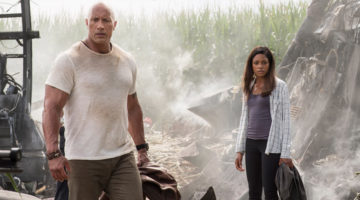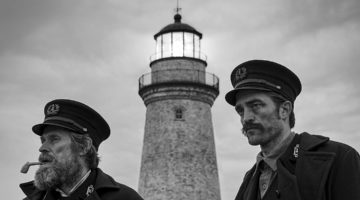Cannes 2012 Review: Hemingway and Gellhorn
One of the more ambitious films showing at Cannes this year strangely enough is a movie that is showing on the small screen. Made for HBO, and airing Monday night, Philip Kaufman’s lofty Hemingway and Gellhorn tries and occasionally succeeds at telling the romantic yet turbulent times spent together between the fiery writers Martha Gellhorn and Earnest Hemingway.
Nicole Kidman and Clive Owen are the reasons the film works as well as it does. The two have instant chemistry when they meet in a dive of a bar in Key West, and a romantic chase slowly brews as a parallel professional relationship emerges. Amid the horror that is the Spanish Civil War, Hemingway adheres to the requests of his friends to write a great narrative to gain the attention of America, while Gellhorn herself feels a sense of duty, earning her way to the front as a war correspondent.
Set against the backdrop of the war, an intimate relationship develops between the two, and inspiration for prose is drawn from passion. The first half of the movie is riveting, with tension from the battlefield and bedroom permeating throughout every scene. The pair arrives at a hotel just near the front, Hemingway flying first class and Gellhorn hitching a ride via train and tank, where they are greeted by soldiers and activists, as well as a pair of seedy but allied Russians, played with heavy accents by Tony Shaloub and Robert Duvall.
While the first part of the two and a half hour movie is about their intimate relationship surrounded by war, the second half stalls, but not for lack of trying. The time frame is just too lengthy, and the lives of the pair are often so frenzied, it is hard to tell their entire life story, and even just their later years in life.
The pair returns from the war but Gellhorn’s thirst for journalism grows ever more, and while Hemingway is ready to settle with Gellhorn (his third wife), she wants more. It is a tough task to effectively capture the life of one influential writer, but to add in his equally compelling and driven wife makes it all the more difficult.
The film is narrated by Gellhorn, which seems a strange choice. It suggests the film is more about her as an individual than the two of them together, a pair that is inextricably linked, for without their auspicious meeting, Gellhorn may not have had the life she had. That is not to say she is forever in debt to Hemingway, but the narration, taking place 30 years after Hemingway’s death, suggests that Gellhorn is still struggling to escape his shadow.
If so, then why not the title Gellhorn and Hemingway? The great American writer, lauded for his novel made during the Spanish Civil War For Whom the Bell Tolls¸ appears more of a caricature, spouting metaphors and talking of writing in a grandiose sense instead of actually writing. He is less a thoughtful scribe than a brute of a man, hunting, fishing, and charging into the battlefield. Gellhorn is less impetuous, acting out of compassion and desire to tell a powerful story; perhaps then the title should just be Gellhorn.
Kaufman, with ever more ambition, decided to infuse quite a bit of historic footage in the movie, adding Kidman and Owen to the black and white grainy footage, a feat that like the entire movie hits and misses.
The later years of the two, which naturally includes more turmoil than peace, and the death of Hemingway, are put together with more haste. The scenes play more as pit stops in a movie that is simply trying to get to the end rather than the epic tale it could, and should be.
[star v=3]







